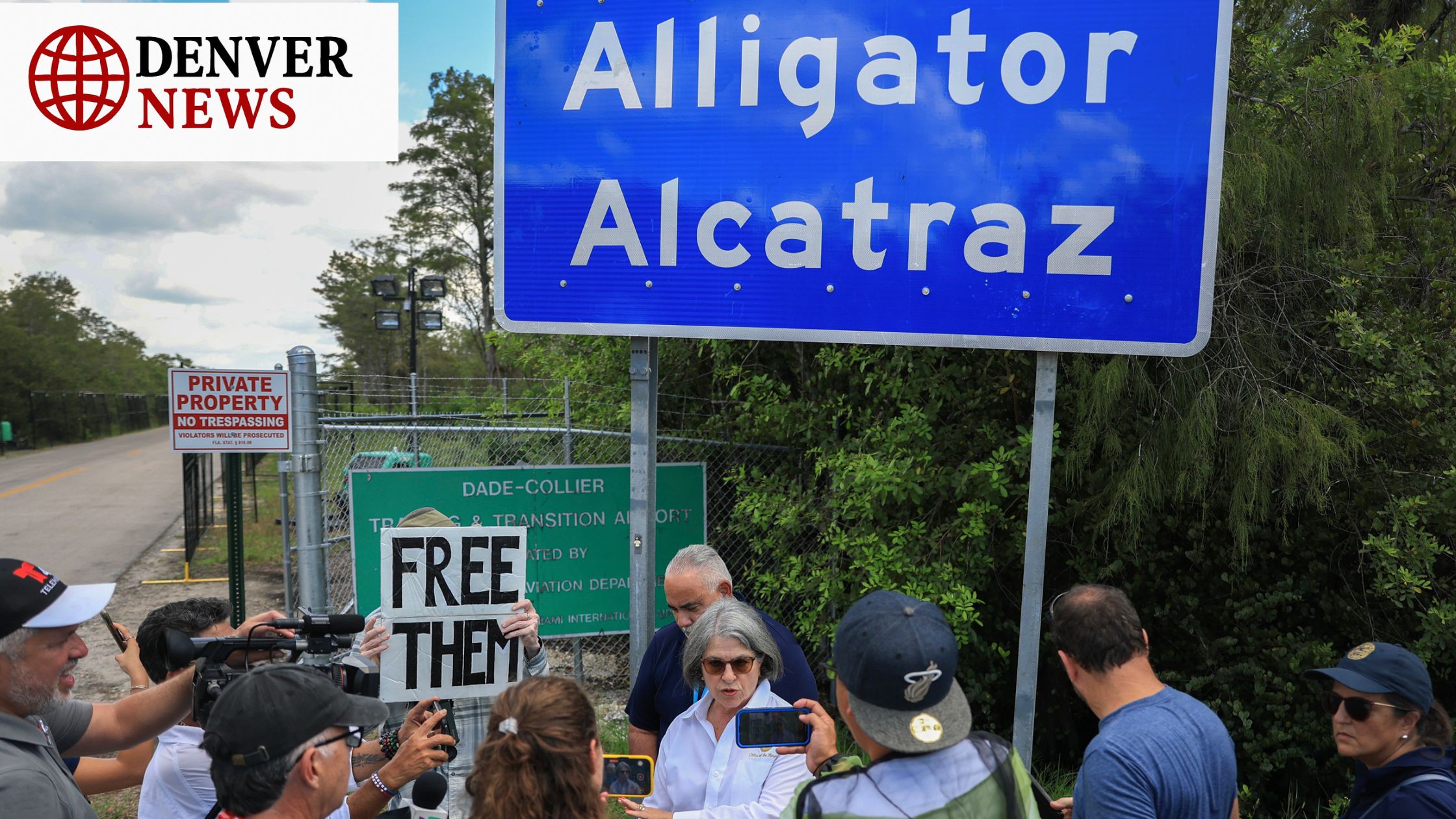Deep in the heart of the Florida Everglades, a place nicknamed “Alligator Alcatraz” for its remote and harsh conditions, has been at the center of a fierce legal and environmental battle. This week, that battle reached a pivotal moment.
In a powerful ruling that rebuked both state and federal governments, U.S. District Judge Kathleen M. Williams ordered an immediate halt to operations at the contentious detention facility. The core of her decision? A profound failure to protect one of America’s most fragile ecosystems.
The state of Florida now has 60 days to remove all detainees and begin dismantling the very infrastructure that made the camp operational: the fencing, lighting, power generators, and sewage systems. For now, the sounds of construction will be replaced by the natural sounds of the swamp, a victory for environmentalists and the Miccosukee Tribe who called this a fight for their homeland’s survival.
Why “Alligator Alcatraz”? The Controversy Explained
So, how did a remote airstrip become such a flashpoint? The facility, officially built on the Collier Dade Training and Transition Airport, was rapidly constructed as a state-run center for federal immigration detainees. It was a key part of a broader immigration crackdown, but its problems were immediate and numerous.
Lawmakers and journalists who toured the site described a grim scene: hundreds of migrants confined in cages amidst sweltering heat, bug infestations, and inadequate conditions. But beyond the human rights concerns lay another, equally critical issue: its location.
The camp is surrounded on all sides by protected lands—Everglades National Park, Big Cypress National Preserve, and the tribal lands of the Miccosukee Tribe. This placed it squarely in the middle of a sensitive watershed that provides drinking water and is home to numerous endangered species.
Judge Williams’ Ruling: The Law of the Land (and the Water)
The lawsuit, brought by a coalition of environmental groups and the Miccosukee Tribe, argued that governments cut a massive legal corner. They alleged that by not conducting a federally mandated environmental review before construction, the project was illegal from the start.
Judge Williams agreed.
In her ruling, she found that the state and federal governments had violated the National Environmental Policy Act (NEPA). Her opinion was scathing in its clarity, stating the project “creates irreparable harm in the form of habitat loss and increased mortality to endangered species in the area.”
This wasn’t just a minor procedural slap on the wrist. By granting the preliminary injunction, Judge Williams effectively stopped the project in its tracks, recognizing that the potential damage to the Everglades was both immediate and unacceptably dangerous.
A Victory for the Everglades, But the Fight Isn’t Over
The reaction from the plaintiffs was one of immense relief and validation.
“We are so relieved,” said Elise Pautier Bennet, an attorney for one of the environmental groups. “We presented voluminous evidence… showing this was the right decision to protect the environment and the interest of Americans in the Everglades.”
U.S. Rep. Frederica Wilson (D-Fla.) was more blunt, celebrating the ruling on social media by stating, “It’s about damn time!” adding that the facility was “cruel, careless, and destructive from the start.”
However, this is likely just the first chapter in a longer legal saga. The state of Florida has already filed a notice of appeal, signaling its intent to fight the ruling. A spokesperson for Governor Ron DeSantis quipped, “The deportations will continue until morale improves,” indicating the political battle is far from over.
The Takeaway: A Precedent for People and Planet
The case of “Alligator Alcatraz” is more than a story about a single detention center. It’s a landmark case that underscores a powerful principle: no project, however politically motivated, is above the law designed to protect our natural environment.
Judge Kathleen Williams’ ruling affirms that the government must still answer to the bedrock environmental laws that have safeguarded America’s natural treasures for decades. For the Miccosukee Tribe and the countless advocates for the Everglades, this decision is a testament to the power of persistent advocacy and the crucial role of an independent judiciary.
For now, the alligators and panthers of the Everglades have won a crucial battle. The world will be watching to see if the reprieve for this unique ecosystem becomes permanent.
Other Using Link https://denverenews.com/wrestlepalooza/







